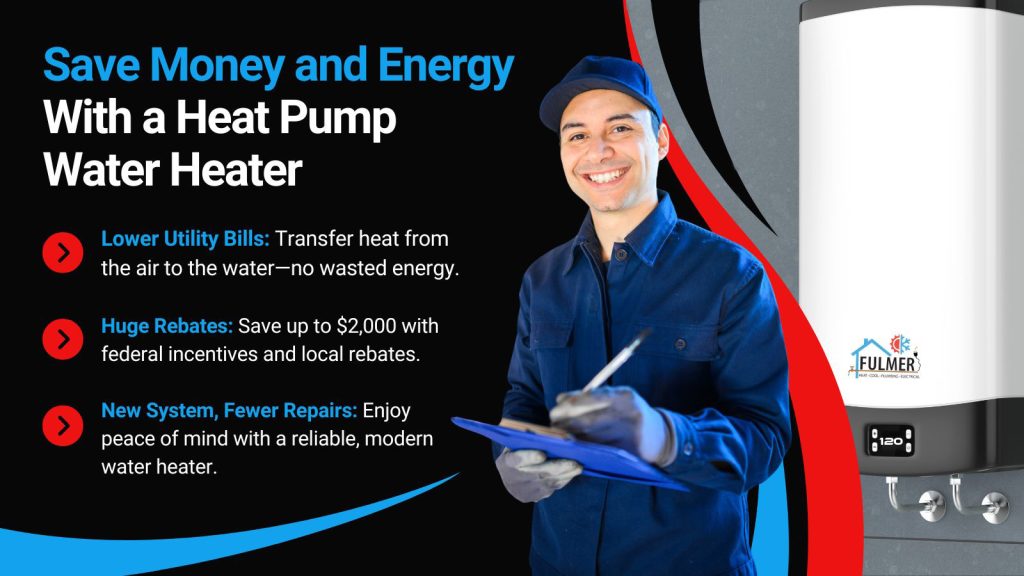Of all the appliances in your home, a water heater might have one of the shortest lifespans. A typical life expectancy for a storage tank water heater is just eight to twelve years. And when the time comes to replace it, you’ve got some great options.
The most efficient way to heat water is not with combusted natural gas or with electrical resistance. No, to achieve maximum efficiency, you’ll have to use refrigerant!
Does this surprise you? A heat pump water heater is a fantastic option, and right now, you’ll be able to take advantage of federal tax rebates and local utility incentives.

How Heat Pumps Work
In the simplest terms, a heat pump works on the same principle as an air conditioner. A compressor keeps refrigerant under pressure, so it will flow through coils. Refrigerant has a high thermal conductivity, which means it changes temperature quickly. Because of this, it can absorb a lot of heat from one area, and then release it easily in another place.
Air conditioners have refrigerant that only flows in one direction: it carries heat out of the home. Heat pumps have a component called the reversing valve which makes it possible to have the refrigerant flow in the opposite direction, to carry heat into the home. Because no heat has to be generated—it’s only being transferred from place to place—this is an astoundingly efficient method of heating.
How Heat Pumps Heat Water
Using this same basic concept, a heat pump can be used not just to heat air, but to heat water. Refrigerant coils absorb heat from the air outside of the water heater. Then they pass through the water, releasing heat into that water. The refrigerant continues to cycle, and heat continues to be carried into the water.
Does the air have to be as hot as you want your water to get? No! It’s not the specific temperature that makes this exchange possible. It’s the temperature differential—the difference between the air and the refrigerant. In order to increase the temperature of the water, the air only has to be warmer than the icy-cold refrigerant.
Many Ways to Save Money
The first way that a heat pump water heater will save you money is by reducing your energy bills, each and every month, for the lifetime of the system. You’ll also benefit simply from the newness of the system. A new water heater is likely to go years without requiring repair, whereas your old water heater will need more and more attention toward the end of its life.
But that’s not all! Thanks to the Inflation Reduction Act, anyone who purchases a heat pump water heater can get a huge tax rebate. 30% of the cost of replacing your water heater will be refunded to you, up to a total of $2000. Depending on your electrical provider, there may also be incentives and rebates you can get through them.
We’d be delighted to discuss all your options for a heat pump water heater in Columbia, SC and help you get all the rebates you’re entitled to.
Contact Fulmer Heating & Cooling today for a water heater expert in Columbia, SC!






